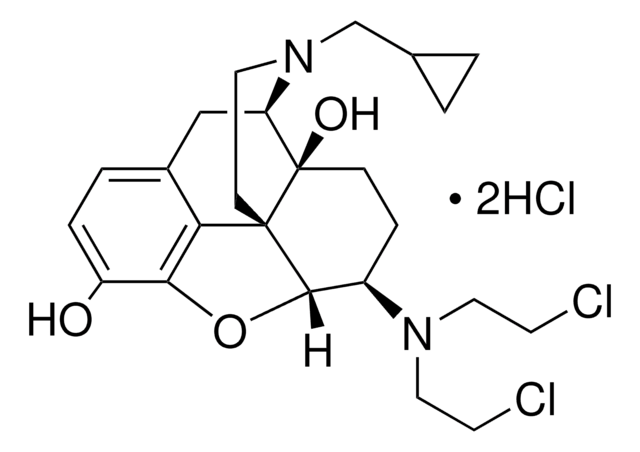T133
Inactin® hydrate
≥98% (HPLC)
Synonym(s):
Thiobutabarbital sodium salt hydrate
About This Item
Recommended Products
Quality Level
Assay
≥98% (HPLC)
form
powder
drug control
USDEA Schedule IIIN; regulated under CDSA - not available from Sigma-Aldrich Canada
color
light yellow
solubility
H2O: soluble (storage of solutions for more than 8 hours at 4°C is not recommended.)
SMILES string
[Na+].CCC(C)C1(CC)C([O-])=NC(=S)NC1=O
InChI
1S/C10H16N2O2S.Na/c1-4-6(3)10(5-2)7(13)11-9(15)12-8(10)14;/h6H,4-5H2,1-3H3,(H2,11,12,13,14,15);/q;+1/p-1
InChI key
SLZHLQUFNFXTHB-UHFFFAOYSA-M
Application
Biochem/physiol Actions
Legal Information
Storage Class Code
11 - Combustible Solids
WGK
WGK 3
Flash Point(F)
Not applicable
Flash Point(C)
Not applicable
Personal Protective Equipment
Certificates of Analysis (COA)
Search for Certificates of Analysis (COA) by entering the products Lot/Batch Number. Lot and Batch Numbers can be found on a product’s label following the words ‘Lot’ or ‘Batch’.
Already Own This Product?
Find documentation for the products that you have recently purchased in the Document Library.
Our team of scientists has experience in all areas of research including Life Science, Material Science, Chemical Synthesis, Chromatography, Analytical and many others.
Contact Technical Service







